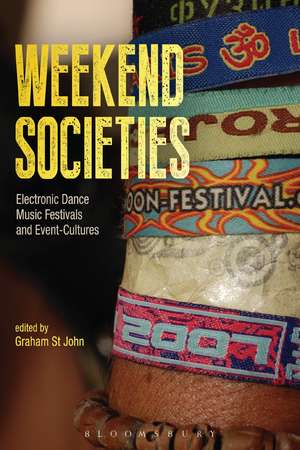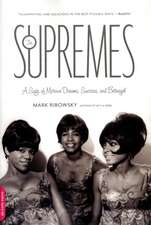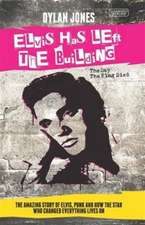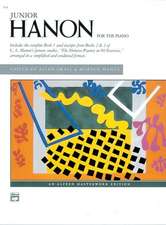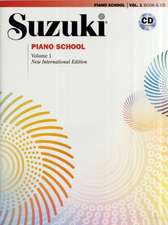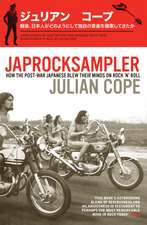Weekend Societies: Electronic Dance Music Festivals and Event-Cultures
Editat de Dr. Graham St Johnen Limba Engleză Paperback – 25 iul 2018
| Toate formatele și edițiile | Preț | Express |
|---|---|---|
| Paperback (1) | 237.66 lei 6-8 săpt. | |
| Bloomsbury Publishing – 25 iul 2018 | 237.66 lei 6-8 săpt. | |
| Hardback (1) | 832.99 lei 6-8 săpt. | |
| Bloomsbury Publishing – 11 ian 2017 | 832.99 lei 6-8 săpt. |
Preț: 237.66 lei
Preț vechi: 272.74 lei
-13% Nou
Puncte Express: 356
Preț estimativ în valută:
45.48€ • 47.12$ • 37.96£
45.48€ • 47.12$ • 37.96£
Carte tipărită la comandă
Livrare economică 22 martie-05 aprilie
Preluare comenzi: 021 569.72.76
Specificații
ISBN-13: 9781501343773
ISBN-10: 1501343777
Pagini: 264
Ilustrații: 25 B&W Images
Dimensiuni: 152 x 229 x 19 mm
Greutate: 0.36 kg
Ediția:NIPPOD
Editura: Bloomsbury Publishing
Colecția Bloomsbury Academic
Locul publicării:New York, United States
ISBN-10: 1501343777
Pagini: 264
Ilustrații: 25 B&W Images
Dimensiuni: 152 x 229 x 19 mm
Greutate: 0.36 kg
Ediția:NIPPOD
Editura: Bloomsbury Publishing
Colecția Bloomsbury Academic
Locul publicării:New York, United States
Caracteristici
Contributions cover a full spectrum of current approaches in world EDM cultural studies.
Notă biografică
Graham St John is a Postdoctoral Researcher in the Dept of Social Sciences, University of Fribourg, Switzerland, and an Adjunct Research Fellow in the Griffith Centre for Cultural Research, Griffith University, Australia. He is Executive Editor of Dancecult: Journal of Electronic Dance Music Culture.
Cuprins
Introduction: Dance Music Festivals and Event-Cultures, Graham St John, University of Fribourg Part One. Dance Empires and EDM Culture Industry 1. EDM Pop: A Soft Shell Formation in a New Festival Economy. Fabian Holt, University of Roskilde2. Stereosonic and Australian Commercial EDM Festival Culture. Ed Montano, RMIT University3. Searching for a Cultural Home: Asian American Youth in the EDM Festival Scene. Judy Park, Harvard College Part Two. Underground Networks and Transformational Events 4. Boutiquing at the Raindance Campout: Relational Aesthetics as Festival Technology. Bryan Schmidt, University of Minnesota5. Harm Reduction or Psychedelic Support? Caring for Drug-Related Crises at Transformational Festivals. Deirdre Ruane, Goldsmiths, University of London6. Dancing Outdoors: DiY Ethics and Democratized Practices of Well-being on the UK Alternative Festival Circuit. Alice O'Grady, University of Leeds7. Free Parties and Teknivals: Gift-Exchange and Participation on the Margins of the Market and the State. Anne Petiau (trns Luis-Manuel Garcia) Part Three. Cosmopolitan Experiments and Electroniculture 8. Towards a Cosmopolitan Weekend Dance Culture in Spain: From the Ruta Destroy to the Sónar Festival. Paolo Magaudda, University of Padova9. Being-Scene at MUTEK: Remixing Spaces of Gender and Ethnicity in Electronic Music Performance. tobias c. van Veen, Université de Montréal10. Charms War: Dance Camps and Sound Cars at Burning Man. Graham St John, University of Fribourg
Recenzii
A welcome and valuable contribution to an expanding literature on the alternative festival phenomenon, offering numerous avenues for further investigation given an eager researchers' capacity to fend off chain saw-wielding critics, party round-the-clock, and hunt for the most innovative of creative expressions wherever the transformational path may lead.
Often hidden from view, music festivals continue to transform the economic logics of the music industries and to challenge the ways popular music scholars think about community. Weekend Societies is an up to date and genuinely international treatment of contemporary musical festivals, rooted in rich field work and sharp observation. At the same time, it invites us to think in new ways about utopian spaces, collective experience and the nature of the musical commodity. Highly recommended.
Weekend Societies is an energising collection of essays that explores the varied cultures associated with contemporary electronic music festivals. Offering up a cross-section of festivals, from Sydney to Spain to Montreal and many other places in-between, this volume critically engages with the multifarious dimensions, and the consequent problems and promises, of the festivalisation of electronic dance music culture. The result is a welcome addition to popular music studies.
From festival as utopian gift to festival as corporate event, this lively and engaged collection offers us a unique view, often first hand, and for the first time, of the trajectory of EDM gatherings. Starting with secret underground raves and free parties and tracing their development to the mega-event of a massive commercial gathering, we begin to see more of a neglected strand of music festival practice. A significant contribution to our understanding of festival studies.
Often hidden from view, music festivals continue to transform the economic logics of the music industries and to challenge the ways popular music scholars think about community. Weekend Societies is an up to date and genuinely international treatment of contemporary musical festivals, rooted in rich field work and sharp observation. At the same time, it invites us to think in new ways about utopian spaces, collective experience and the nature of the musical commodity. Highly recommended.
Weekend Societies is an energising collection of essays that explores the varied cultures associated with contemporary electronic music festivals. Offering up a cross-section of festivals, from Sydney to Spain to Montreal and many other places in-between, this volume critically engages with the multifarious dimensions, and the consequent problems and promises, of the festivalisation of electronic dance music culture. The result is a welcome addition to popular music studies.
From festival as utopian gift to festival as corporate event, this lively and engaged collection offers us a unique view, often first hand, and for the first time, of the trajectory of EDM gatherings. Starting with secret underground raves and free parties and tracing their development to the mega-event of a massive commercial gathering, we begin to see more of a neglected strand of music festival practice. A significant contribution to our understanding of festival studies.
